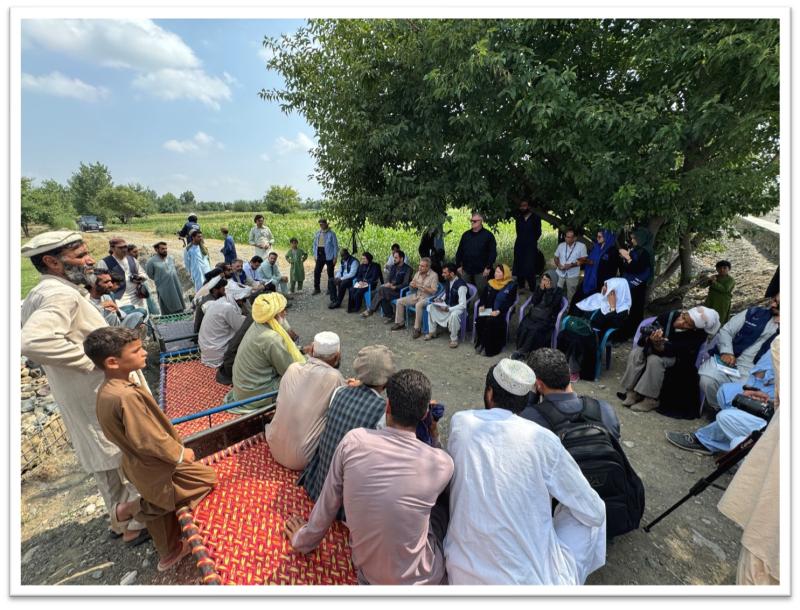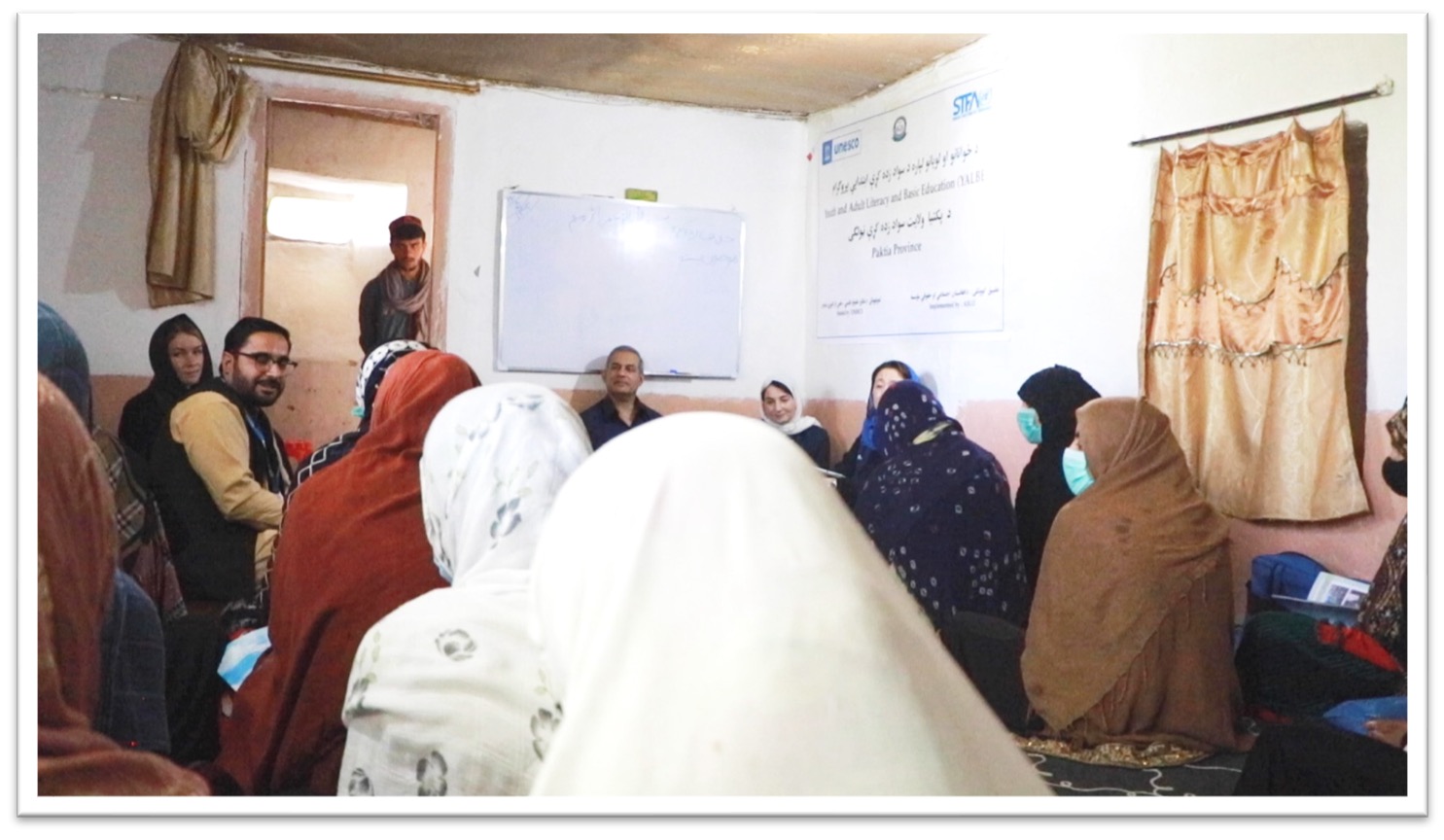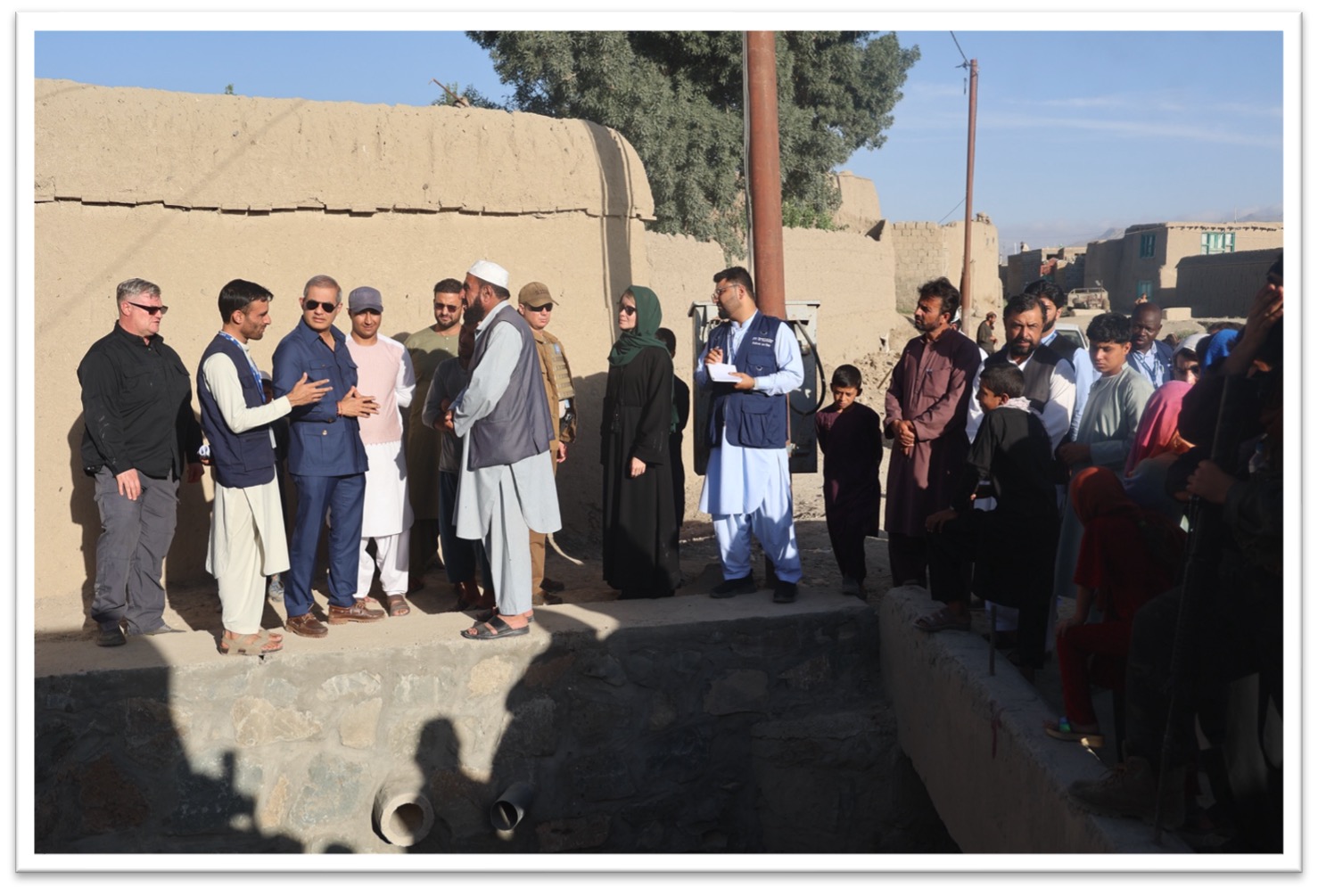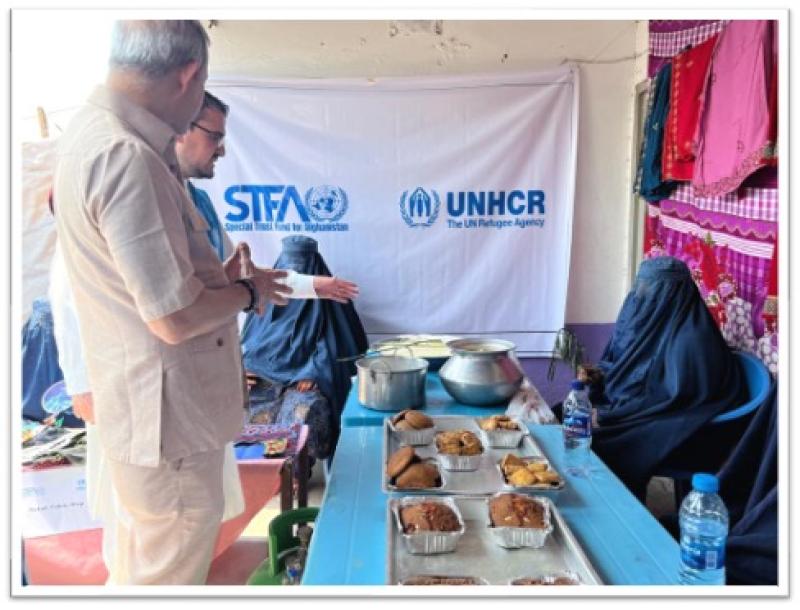

By Indrika Ratwatte, Deputy Special Representative of the Secretary-General, United Nations Assistance Mission in Afghanistan, Resident and Humanitarian Coordinator and Chairman of the STFA – Kabul, Afghanistan
In August 2024, I had the chance to participate in a joint mission together with UN agencies and our partners to the South-Eastern region of Afghanistan, an area that has long suffered from conflict, displacement, and the effects of climate change. This mission, organized by the Special Trust Fund for Afghanistan (STFA), offered insights into the challenges and hopes of the local residents – especially returnees from Pakistan and Iran and internally displaced persons (IDPs).
Our goal of this mission extended beyond merely assessing the ongoing project interventions supported by the UN with our partners. It was crucial to listen to Afghans to understand their needs to find ways to empower them further. Our encounters shed light on the tangible results of our work, emphasizing the importance of community engagement, effective coordination and collaboration, and prioritizing long-term solutions over short-term assistance.

The resilience and determination of the Afghan people – farmers, businesswomen and businessmen, and families – we met is truly inspiring. Despite severe adversity, they remained hopeful and committed to rebuilding their lives and communities. It was evident, however, that their needs surpass immediate relief and that they require tools, means, and resources for sustainable self-reliance.
One key takeaway from this mission was the critical role of local community involvement in planning and implementation of projects. Afghans I spoke with voiced a strong desire for better schools and healthcare facilities as well as support for sustainable livelihoods.
A bottom-up and participatory approach not only enhances the effectiveness of these projects but also ensures their sustainability and ownership. For instance, the local community’s input in Zor Bazar, Gardez City, Paktya province was invaluable in constructing flood protection walls, as they know the geography best. After years of flooding which destroyed large parts of the farmland, the flood protection wall now supports to protect the livelihoods of entire communities reliant on agriculture.

Each organisation brings its unique expertise and mandates to the field. Working in unison significantly increases the effectiveness. Through joint planning and coordinated efforts, we can prevent duplication, minimize overlaps, fill gaps, and optimize the utilization of resources. By capitalizing on the specific strengths and expertise of each organisation, we can take practical and achievable steps to enhance the impact of our interventions, delivering more comprehensive and effective support to those in need.

Looking forward, it is evident that our focus must remain on longer-term, sustainable solutions that equip these communities with the necessary tools and training to become self-sufficient. This includes ensuring that our projects are designed to be sustainable, particularly in key sectors like healthcare and education.
I am reminded of our profound responsibility towards the people we serve. They deserve our unwavering commitment to making lasting change.